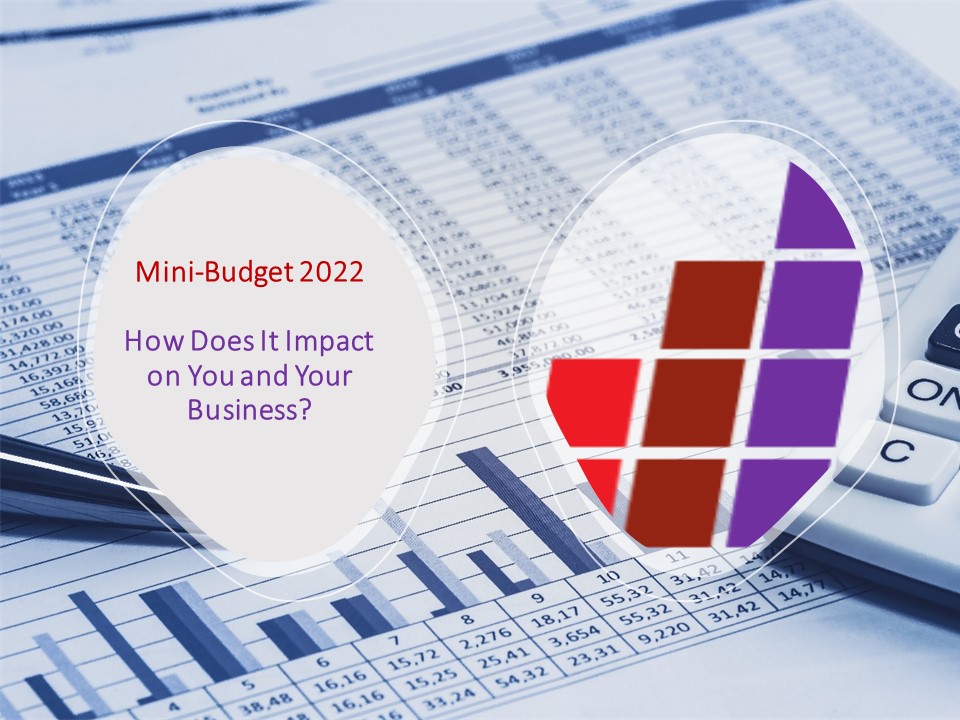The Autumn Budget 2022 at a Glance
December 14, 2022
The Autumn Budget 2022 at a Glance

The Autumn Budget 2022 has a significant to you and your business as it has huge number of changes on tax matters once the Mini Budget 2022 became questionable. While people are suffering from living costs, the Government takes many steps in this budget. In this article, the writer will note the summary of key tax matters relevant to you and your business.
Income Tax Allowance and Rates for Individuals
- The basic, higher, and additional income tax rates will remain at 20%, 40% and 45% respectively for 2023/24 tax year
- The basic and higher rate thresholds remain at the current level of £12,570 and £50,270. However, the additional income rate thresholds will reduce from £150,000 to £125,140 from April 2023
- The personal allowance will remain frozen at £12,570 until 6 April 2028
National insurance (NI) Contributions
- The employment allowance is set at the current level of £5,000
- The Health and Social Care Levy is no longer going ahead and the temporary NIC increase of 1.25% has been removed from 6 November 2022
- The national insurance thresholds for all classes will be maintained at the current level until April 2028
National Minimum Wage
- From April 2023, the hourly national minimum will increase to £10.42 (aged 23 or over), £10.18 (aged between 21 and 22), £7.49 (aged from 18 to 29), £5.28 (16-17 years old) and £5.28 (apprentice rate)
Dividend Allowance and Tax Rates
- The annual dividend allowance for individual will reduce from £2,000 to £1,000 from April 2023 and a further reduction to £500 from April 2024
- The dividend tax rate will remain at the current level of £8.75%, 33.75% and 39.35% respectively for the basic, higher, and additional taxpayers
Corporation Tax
- From April 2023, the companies with profits over £250,000 will pay tax at 25% and small companies with profits up to £50,000 will pay tax at the current rate of 19%
- Companies with profits between £50,000 and £250,000 will pay tax the main rate reduced by a marginal relief providing gradual increase in the effective corporate tax rate
Annual Investment Allowance
- Annual Investment Allowance (AIA) has been confirmed at a permanent rate of £1 million from April 2023
Annual Exemption Reduction of Capital Gains Tax (CGT)
- The annual exemption of capital gains tax for individuals will reduce from £12,300 to £6,000 from April 2023 and then further to £3,000 from April 2024
Inheritance Tax (IHT)
- The thresholds will remain at the current level (until April 2028) for Inheritance tax nil-rate band (£325,000) and residence nil-rate band (75,000)
- Without IHT liability, qualifying estates can continue to pass on up to £500,000 and qualifying estate of a surviving spouse or civil partner can continue up to £1m
Stamp Duty Land Tax (SDLT)
- The cut of Stamp Duty Land Tax (SDLT) will remain in place until 31 March 2025. On 23 September 2022, the government increased the nil-rate threshold of SDLT from £125,000 to £250,000 for all purchasers of residential property in England and Northern Ireland and increased the nil-rate threshold paid by first-time buyers from £300,000 to £425,000
- The maximum purchase price for which First Time Buyers’ Relief can be claimed was increased from £500,000 to £625,000. This will now be a temporary SDLT reduction which will remain in place until 31 March 2025
Disclaimer: The above information is just as a general information that might help you. However, we highly recommend having expert advice suited for your circumstances. The Stan Lee and its author are not liable if you rely on this and have any consequences.
The Autumn Budget 2022 at a Glance Read More »



